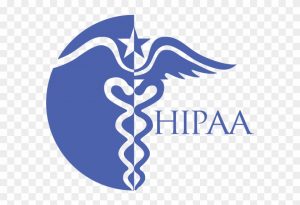Interpreting for individuals with disabilities is no easy feat. To ensure that these individuals receive adequate accommodations and support, it is crucial to understand their respective Individual Education Plans (IEP). As an interpreter, it is essential to have a good understanding of IEPs to facilitate effective communication between teachers, parents, and students. In this blog post, we’ll explore the objectives of Dialog One’s Academy program for interpreters and how it can help them interpret IEP meetings.
1. Identify Elements and Sections of a Typical IEP:
IEPs, by law, should always follow a specified format and structure. The Academy program will teach interpreters the different sections of an IEP and what each entails. This objective includes learning about the different types of goals, services, and accommodations that are included in an IEP. By the end of this objective, interpreters will have an in-depth understanding of the structure and format of an IEP.
2. Describe Key Federal Laws Pertaining to IEPs:
Federal laws govern the IEP process to ensure that students with disabilities receive equal opportunities in education. Interpreters must know these laws and how they impact the IEP development process. This objective includes an introduction to the Individuals with Disabilities Education Act (IDEA) and its mandates. The objective also covers other federal laws that are related to IEPs.
3. Prepare to Interpret for Meetings to Create, Renew, or Modify IEPs:
During IEP meetings, interpreters play a key role in facilitating communication by offering accurate interpretations. This objective teaches interpreters how to prepare for these meetings and what to expect during them. By the end of this objective, interpreters will have a clear understanding of their role in IEP meetings.
4. Locate Resources for Personal Glossary Creation for IEP Meetings:
Effective communication is vital during IEP meetings, and interpreters must have a strong grasp of the language used during these meetings. This objective covers creating a personal IEP glossary with relevant terms and concepts to ensure accurate interpretations. Interpreters will also learn where to find additional resources for creating glossaries that will be useful in IEP meetings.
5. Select Appropriate Modes to Use during IEP Meetings:
Interpreters must select the best mode of interpretation that would be appropriate for a particular situation, taking into account the complexity of the language used and the specific demands of the situation. During this objective, interpreters will learn how to select the best modes of interpretation, depending on the type of IEP meeting they are interpreting.
6. Effectively Intervene to Request Clarification or Identify a Communication Breakdown:
At times, misunderstandings may arise during an interpreting session. Interpreters must intervene in such situations while observing the ethical guidelines for interpretation. This objective teaches interpreters effective intervention techniques to clarify misunderstandings, and how to identify communication breakdowns that interfere with effective communication.
7. Address Strategies for Interpreting IEPs Remotely:
In this era of virtual communication, remote interpreting is becoming increasingly prevalent. This objective teaches interpreters how to adapt to remote interpreting, how to use technology effectively, and how to ensure that they maintain their professional practices while working remotely.
8. Practice Sight Translating IEP Documents:
Sight translation refers to the process of reading a document aloud, in the target language, without prior preparation. This objective will teach interpreters how to sight translate IEP documents effectively. By the end of this objective, interpreters will have sharpened their sight translating skills and enhanced their ability to provide clear and accurate interpretations.
Conclusion:
In conclusion, Dialog One’s Academy Learning Objectives for Interpreters serve as an exceptional foundation for developing the skills needed to interpret intercommunications effectively. By mastering these objectives, interpreters will be able to provide accurate, reliable, and professional interpretations for IEP meetings. Furthermore, this mastery of skills will not only contribute to better communication but will ultimately lead to better educational outcomes for students with disabilities.


